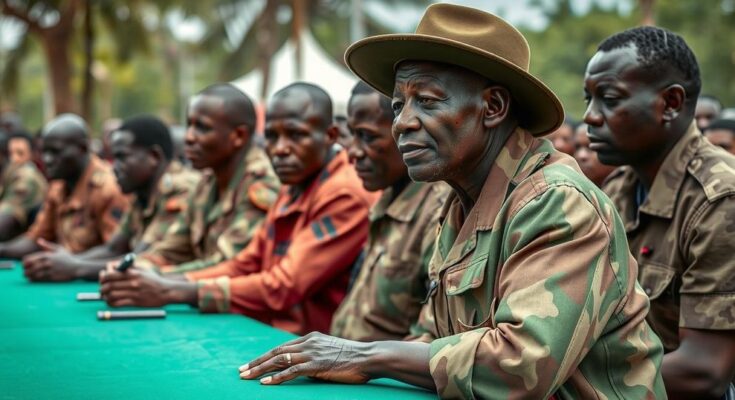The DRC and Rwanda have withdrawn from peace talks aimed at resolving the conflict with the M23 rebel group, heightening tensions and exacerbating the humanitarian crisis in the region. The conflict, rooted in ethnic strife following the Rwandan Genocide, demands renewed commitment to dialogue and intervention from international bodies to pave the way for resolution.
On December 15th, the Democratic Republic of Congo (DRC) and Rwanda announced their withdrawal from a scheduled peace talk in Angola, aimed at addressing the ongoing M23 conflict. The region has been embroiled in a protracted struggle with the M23 rebel group, which emerged in 2012, largely comprising defectors from the Congolese military. This group has significantly exacerbated the human rights crisis, with increased violence towards civilians and the utilization of child soldiers.
The origins of the conflict can be traced back to deep-seated ethnic divisions between Hutu and Tutsi communities, stemming from the aftermath of the 1994 Rwandan Genocide. These tensions have spilled over into Congolese territory, complicating regional stability. Rwanda’s involvement in advocating dialogue raises concerns in the DRC regarding potential collusion with the M23, given that Rwanda perceives Hutu militant groups as threats to its national security.
Congolese spokesman Giscard Kusema articulated concerns about Rwanda’s preconditions for a peace agreement, which included demands for direct talks with the M23. Meanwhile, Rwanda indicated that it might withdraw its defensive measures if the DRC would neutralize Hutu rebels responsible for assaults against Tutsis in both nations. However, President Félix Tshisekedi of the DRC ultimately dismissed these proposals, which has resulted in heightened accusations from international organizations regarding Rwanda’s complicity in the conflict.
The situation has deteriorated to a point where the UN and African Union have expressed serious concerns about Rwanda’s alleged support for the M23, including accusations of troop presence in DRC territory. In response, Rwandan officials assert that their military presence is purely a defensive measure. A source within the Congolese government pointed out that genuine commitment from Rwanda to peace negotiations could potentially bring about a resolution to the M23 conflict.
The halted peace talks signify a significant missed opportunity to foster dialogue and develop strategies for peace. For a resolution to be effective, a new peace initiative must be initiated, emphasizing a mutual understanding of the parties’ historical grievances and concerns. Furthermore, increased direct involvement from international bodies is essential, as mediators can facilitate constructive discussions and help ensure compliance with any agreements reached.
The impasse between the DRC and Rwanda enhances the humanitarian crisis in the region and underscores the urgent necessity for peace talks. Without engagement in dialogues aimed at conflict resolution, the prospect of further destabilization looms, along with an escalation of human rights abuses. A successful negotiation process could eventually pave the way for enduring peace in the Congo.
The Democratic Republic of Congo has been experiencing ongoing conflict involving the M23 rebel group, which has roots in ethnic tensions following the Rwandan Genocide. The M23, largely composed of defectors from the DRC military, has intensified violence in the eastern region of the country. Continued dialogue is complicated by the historical animosities between Hutu and Tutsi communities, and by Rwanda’s strategic interest in regional security related to Hutu rebel groups. The international community has expressed concern about the implications of Rwanda’s involvement in the conflict, particularly regarding allegations of troop presence and support for the M23.
The withdrawal of both the DRC and Rwanda from peace talks represents a critical setback in efforts to resolve the ongoing conflict with the M23 group. It underscores the urgency of reinvigorating dialogue aimed at addressing the complex historical and ethnic grievances, while also emphasizing the role of international mediators. To alleviate the humanitarian crisis and work towards lasting peace, both nations must recommit to negotiation and cooperative conflict resolution.
Original Source: theowp.org




